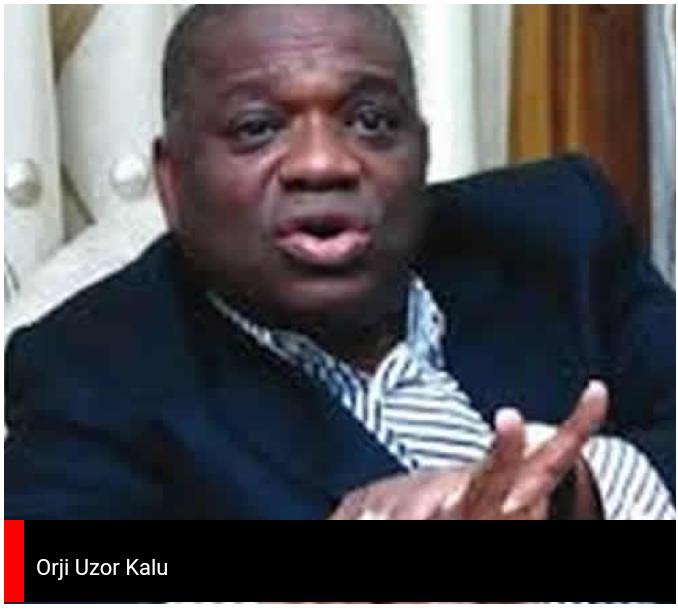EFCC Reviews Tactics As Appeal Court Stops Orji Kalu’s Fraud Trial
The Economic and Financial Crimes Commission has said it will fix the loopholes in its tactics as the Court of Appeal, on Wednesday, rejected the attempt to reopen the N6.7bn fraud case against a former Abia State governor, Orji Uzor Kalu.
The appellate court, in a pronouncement by Justice Joseph Oyewole, held that the records brought forward by the EFCC were unreliable to grant the request for Kalu’s fresh trial.
Speaking to journalists after the judgment, EFCC lawyer, Oluwaleke Atolagbe said the commission would fix the loopholes the court pointed out.
“The court did not go into the merit of the appeal. The court did not go into whether Kalu and Slok cannot be tried.
“The merit of the matter has not been resolved. We have the opportunity to come back appropriately. As it is, we can still come back to the court of appeal for the merit of the case to be determined after putting in place what the court noted,” Atolagbe said.
The Federal High Court in Lagos had on December 5, 2019, convicted Kalu, his company, Slok Nigeria Limited, and a former Abia State Government House Director of Finance and Accounts, Jones Udeogu of the N6.7bn charges.
The court, in a judgment by Justice Idris Mohammed (now a Justice of the Supreme Court), sentenced Kalu to 12 years imprisonment; Udeogu, 10 years imprisonment, while it ordered the winding up of Slok Nigeria Limited and the forfeiture of its assets to the Federal Government.
However, displeased with the judgment, Udeogu filed an appeal, contending that as of the time Justice Idris concluded the 12-year-long trial and pronounced his judgment he had already been elevated from the high court to the Court of Appeal.
In a May 8, 2020 judgment, the Supreme Court agreed with Udeogu and nullified his conviction by Justice Idris, holding that the constitution does not permit a judge elevated to a higher court to return to a lower court to conclude a part-heard case.
Justice Ejembi Eko, who delivered the lead judgment of the panel led by Justice Olabode Rhodes-Vivour (retd.), also declared as unconstitutional the provision of Section 396(7) of the Administration of Criminal Justice Act, 2015, which the then President of the Court of Appeal, Justice Zainab Bulkachuwa (retd), relied on to authorise Justice Idris to return from the Court of Appeal to the high court to conclude the trial.
The panel unanimously directed the Chief Judge of the Federal High Court to assign the case to another judge of the court for the trial to commence afresh.
In June 2020, riding on the Supreme Court’s judgment in favour of Udeogu, Kalu approached the Federal High Court in Lagos to demand his freedom from prison.
The prosecuting counsel for the EFCC, Rotimi Jacobs (SAN), said he would not oppose Kalu’s application to be freed but prayed Justice Mohammed Liman to ensure that the order of the Supreme Court for a fresh trial should be complied with.
Following his release from prison, Kalu, however, filed another suit to stop the EFCC from trying him afresh.
He contended that the retrial order was only applicable to Udeogu and not him, adding that trying him afresh would amount to double jeopardy.
In a September 29, 2021 judgment, Justice Inyang Ekwo of the Federal High Court in Abuja agreed with Kalu and stopped the EFCC from trying him afresh.
Displeased, the EFCC proceeded to the Court of Appeal, which, however, on Wednesday, dismissed the appeal on the grounds that the EFCC did not produce sufficient records to sustain the appeal.
Delivering judgment on Wednesday, Justice Oyewole said, “The record of appeal brought by the Federal Government was incompetent and unreliable for any court to use to grant the request of the government.
“The name of the person who compiled signed, and certified the record was not reflected as required by law.”












Add Comment